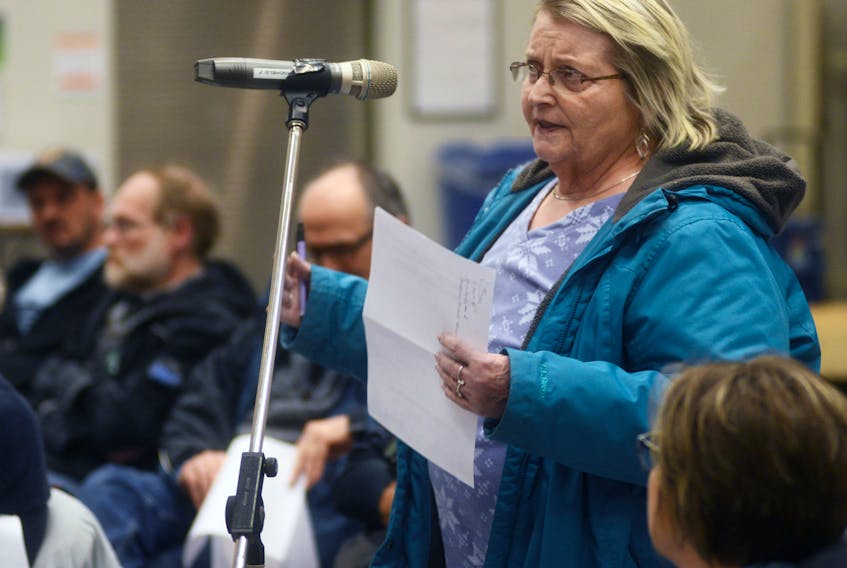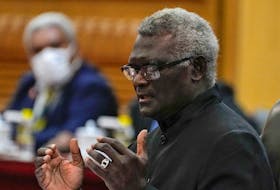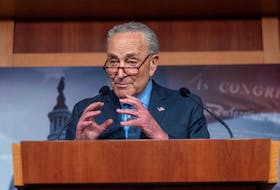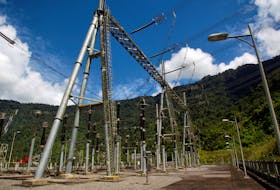THREE RIVERS, P.E.I. - Skepticism of how parties would select its nine list candidates under a mixed-member proportional representation system (MMP) was a recurring theme during a recent public information session.
Both sides of the electoral reform debate were represented at Montague Regional High Monday during the second information session hosted by referendum commissioner Gerard Mitchell.
Some Islanders shared hope proportional representation will bring more diversity and co-operation to P.E.I.’s legislature, while others felt it would ultimately take power away from voters and give it to political parties.
Former Progressive Conservative cabinet minister Pat Mella, who was not representing the party, was one of the first to raise questions on the proposed MMP system.
Mella said while MMP is not an uncommon form of government around the world, she questioned how well it would work in P.E.I.’s relatively small legislature.
She noted New Zealand is often cited as the prime example of MMP.
“But New Zealand has 120 seats in their legislature,” said Mella, adding she felt reducing the number of district seats from 27 to 18 would also take power away from the electorate.
Islanders will vote during the next general election on whether P.E.I. should stick to its first-past-the-post system or switch to MMP.
The proposed MMP system would see Islanders elects MLAs in 18 districts, while each party would also submit a list of nine candidates for a second ballot. The second ballot would then determine the number of seats each party has in the legislature.
Mitchell said list seats would not go to parties who won enough district seats to already reflect their share of the popular vote.
"With all due respect, I think a lot of people, I’m not sure if they prefer to give powers to the parties. I think they like to give the power to the people.”
-Pat Mella
Because parties would decide their list candidates based on their own constitutions, Mella shared concern that parties would opt to run candidates from urban areas where there are more voters.
“The nine (list candidates) are up to the parties. With all due respect, I think a lot of people, I’m not sure if they prefer to give powers to the parties. I think they like to give the power to the people.”

However, MMP supporters said the system would give more power to voters and parties would be held accountable by their membership to run a diverse set of candidates.
“If any party was just putting Charlottetown candidates on their list, they certainly would know they’d get punished at the polls,” said Leo Cheverie. “Right now, where we have 27 districts, the parties now (nominate) the candidates in every single district.
“(Proportional representation) is about power sharing and working together and it will actually reflect a more diverse legislature at the end of the day, including for rural P.E.I., which I think is hopeful.”
Laverne MacInnis, of Murray Harbour, also questioned how list candidates would be selected and whether it would be based on political favours.
“I think MMP is a good idea, but I also get a knot in my gut about really supporting it. Is it going to add to a political climate where everybody owes everybody something?” she asked.
With a little more than 20 in attendance, MacInnis also questioned whether the turnout was due to “leftover hard feelings” from the 2016 plebiscite.
“How many people might be staying home because of that experience? I understand people voted ‘yay’ for it and then government just said, ‘oh no, we’re not going to do that’,” said MacInnis, which saw some in the crowd dispute the statement.
Carol MacLeod, of Valleyfield, suggested parties would run their “best” candidates in districts and their “second best” on the second ballots.
“That is something to consider,” said MacLeod.
Mitchell said he had also heard the opposite argument, where parties would be more likely to run well-known candidates on the provincial list.
“But I don’t know, that’s party strategy so I’m not going there,” said Mitchell.
RELATED








